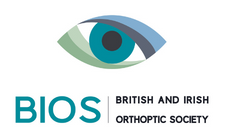If you enjoy science, working with people of all ages and would relish the challenge of problem solving and making decisions independently, orthoptics could be the career for you!
An orthoptist specialises in diagnosing and managing a range of eye conditions that largely affect eye movement and visual development. Understanding the development of eyesight and the role of the brain in controlling the eyes are key to orthoptic work.
Orthoptists have an extremely varied caseload. Typically, their work with babies and children involves the management and treatment of amblyopia (or lazy eye) and strabismus (misalignment of the eyes or squint). With adults, they will manage and treat a range of conditions leading to double vision, commonly following neurological episodes, such as strokes or brain damage.
Orthoptists work as a multidisciplinary team. They usually work as part of a hospital team, but may also work in community healthcare and schools, including special schools. Orthoptics is suited to individuals interested in science and health care.
Orthoptists can move into teaching roles after obtaining appropriate clinical experience. BIOS runs clinical tutor courses which are a good starting point if you wish to pursue a career in academia. You could work towards becoming a lead clinical tutor, developing relationships with the universities. You can deliver ad hoc lectures or take on a full-time academic post. Academic staff usually undertake a mix of teaching, administrative and research activities. Academic roles offer great flexibility and variety in terms of day to day work, as well as opportunities to explore and innovate in specific areas of interest. Health Education England supports formal clinical academic careers allowing orthoptists to work clinically, whilst undertaking teaching and research activities – allowing them to retain an element of direct patient care.
The British and Irish Orthoptic Society is the only professional body representing over 1,500 orthoptists across the UK and Ireland. BIOS members are also automatically members of the International Orthoptic Association.
BIOS are primarily responsible for developing and maintaining professional standards across the profession and the overseeing the quality of orthoptic education.
Our members receive specially tailored services, including medical & professional liability insurance, legal advice and trade union support.
Find out more at www.orthoptics.org.uk

